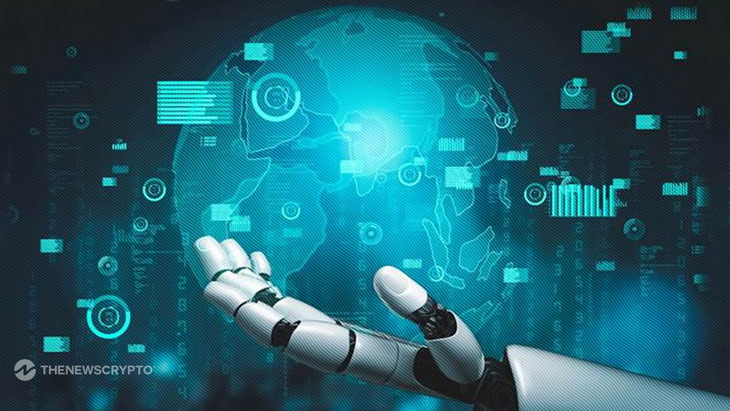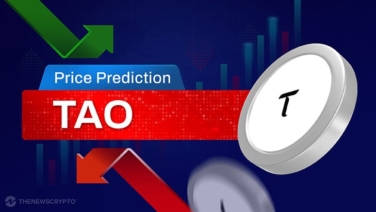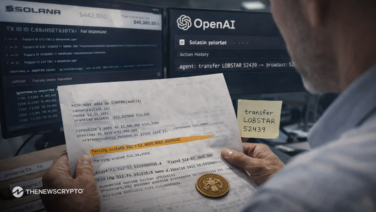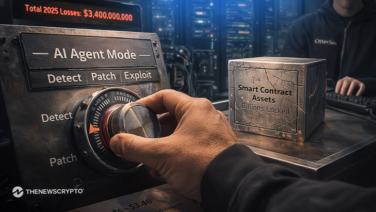With the artificial intelligence (AI) market still in its nascency, many experts see this space continuing to undergo a decade-long maturation process to achieve its true economic and social potential.
That said, as things stand, the AI market is set to expand at a CAGR of 19.1% between 2024 and 2034, reaching a cumulative valuation of $3.68 trillion by the end of the aforementioned time window.
With this context in mind, it bears mentioning that despite this immense upside, most contemporary AI infrastructures have remained highly centralized, with the landscape being overwhelmingly controlled by a handful of tech giants, including Microsoft, Google, OpenAI, and Amazon.
This concentration of power has had profound implications for innovation within this space, especially from an ethical standpoint. As a result, the AI development realm is undergoing a profound transformation, with projects like 0G recently introducing the world’s first Decentralized AI Operating System (dAIOS).
The os challenges the fundamental architecture of traditional AI platforms, offering a brand-new approach to data management, transparency, and computational efficiency.
Thanks to dAIOS’ unique technological proposition, 0G was able to secure $290 million in funding recently from prominent venture capital firms, including Hack VC, Delphi Digital, OKX Ventures, Samsung Next, Bankless Ventures, Animoca Brands, Stanford Blockchain Fund, Polygon, among several others.
The centralization issue and its implications
As highlighted earlier, the centralization of AI development has resulted in the creation of a multifaceted problem that extends far beyond simple technological constraints.
For starters, when a small number of well-resourced organizations are able to dictate AI-related research, development, and implementation, it inevitably leads to a narrow perspective that can perpetuate existing societal biases and limit innovative potential.
The infamous case of Amazon’s AI recruiting tool is a perfect illustration of this conundrum. The tool was abandoned after it was found to favor male candidates due to being trained on resumes predominantly from male employees, reflecting a gender bias ingrained in the data used.
Somewhat similarly, data control is another critical challenge when it comes to AI centralization. Organizations that possess vast datasets necessary for training AI models effectively become gatekeepers of technological innovation.
According to McKinsey, cloud service providers (CSPs) like Amazon Web Services, Google Cloud, and Microsoft Azure currently own more than 50% of the world’s AI-ready data center capacity. Not only that, during Q1 2024, AI-focused startups raised $12.2 billion, but this investment is heavily skewed toward established players and those with access to substantial datasets.
Lastly, centralized AI systems create single points of failure that can be vulnerable to sophisticated cyber-attacks, data breaches, or systematic manipulations. When all computational and data storage infrastructure relies on a limited number of centralized servers, the potential for catastrophic disruptions increases exponentially.
A shift in developmental perspective
0G’s dAIOS represents a fundamental reimagining of AI infrastructure thanks, in large part, to its modular architecture. By leveraging the power of the blockchain, it coordinates distributed hardware resources including storage, computation, and data availability. This approach enables a scalable, transparent, and auditable framework that can integrate seamlessly across various workflows.
The system’s architecture comprises three critical components, namely 0G Storage, 0G Data Availability (DA), and 0G Serving. Each module is designed to address specific aspects of AI workflows, facilitating efficient management of massive data loads and enabling real-time interactions with decentralized applications (dApps).
For instance, 0G Storage utilizes advanced erasure coding to secure data while maintaining accessibility, managed by incentivized miners through a unique Proof of Random Access (PoRA) consensus mechanism.
The performance metrics have been remarkable, to say the least. With throughput speeds of 50 GB per second, 0G has been able to outperform its competitors by an astounding 50,000 times, and at 100 times lower cost.
Empowering different industries
The implications of 0G’s dAIOS extend far beyond technological innovation. By democratizing AI as a public good, the platform has the potential to create opportunities for unprecedented collaboration and innovation across diverse industries.
Healthcare, for example, could benefit from more transparent and secure data sharing, enabling researchers to collaborate without compromising patient privacy. Similarly, financial institutions could leverage decentralized infrastructure to develop more transparent and fair algorithmic trading systems.
The gaming and decentralized finance (DeFi) sectors are already showing significant interest in 0G’s capabilities since the ability to process massive datasets quickly and securely has opened up new frontiers for complex, data-intensive applications that were previously constrained by centralized infrastructure limitations.
Thus, by providing users complete control over their data, promoting transparency, and creating robust monetization mechanisms, dAIOS’ development seems to be ushering in a critical step towards a more equitable and efficient technological future. Interesting times ahead!








